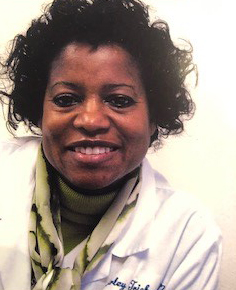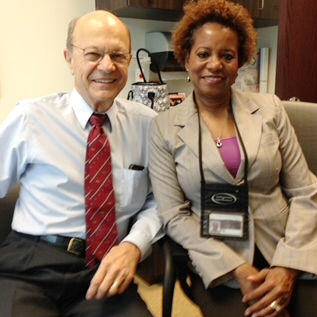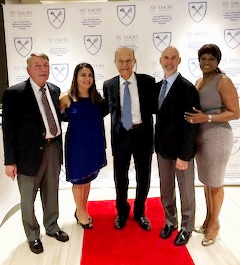Shirley Triche, 30 years
Shirley is a Nurse Practitioner within the Neurology Department of the School of Medicine.
Tell us about your career at Emory.
My initial role at Emory was as the Head Research Nurse, where I coordinated NIH-funded clinical research trials focused on Parkinson's Disease. I worked closely with the Principal Investigator on developing and evaluating surgical treatments for movement disorders. Additionally, I coordinated clinical research trials aimed at gaining FDA approval for Deep Brain Stimulation as a treatment for these disorders. In my current role as a Clinician in the Movement Clinic, I am responsible for programming Deep Brain Stimulators for patients with movement disorders.
What are some of your favorite Emory memories?
One of my favorite memories from my time at Emory involves a particularly impactful case that was featured on Dateline. It centered on a Parkinson's patient named Sybil, who had been a nurse but became disabled due to the disease. She was intolerant of Parkinson's medication, which left her shaking and wheelchair bound. At that time, we were just beginning to use Deep Brain Stimulation as a treatment option for Parkinson's Disease.
Sybil's case was followed by Dateline before, during, and after her surgery. It was incredibly heartwarming to witness her transformation—from being completely dependent on her family for everyday tasks like eating, bathing, and dressing, to the remarkable moment captured on video where she parked her wheelchair in the garage and ran up a hill in her yard. This experience highlighted the profound impact of our team's work in restoring her quality of life and was a deeply rewarding part of my career.
Shirley alongside Emory Professor and Neurologist, Dr. Mahlon Delong.
What are some of the most significant changes you've witnessed?
Throughout my career, I’ve seen significant changes, especially in Deep Brain Stimulation (DBS) technology. Initially, the equipment used for programming and adjusting DBS electrodes was the size of a large briefcase. Now, it’s managed with a handheld tablet featuring touch screen controls. The process of brain mapping, which used to take 9 to 12 hours to locate the target and implant the electrode, has been streamlined. Today, it typically takes just 2 to 4 hours. These advancements have greatly improved the efficiency and effectiveness of DBS treatments.
What do you miss from “back in the day”?
I miss the faculty and peers that moved on or retired.
Celebrating Dr. Mahlon Delong’s Retirement in 2019 with current and former team members.
What do you hope for the future of Emory?
I hope Emory continues to offer cutting-edge clinical care options that are both unique and derived from our research.
Anything else you would like to share?
I have grown and developed personally and professionally through my career thanks to the support of Emory.